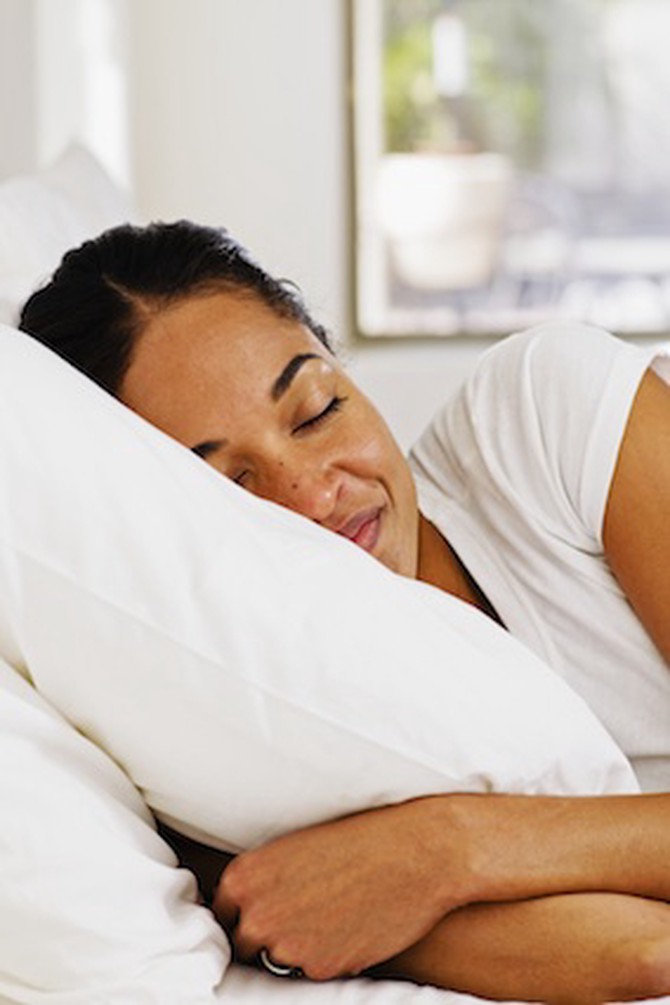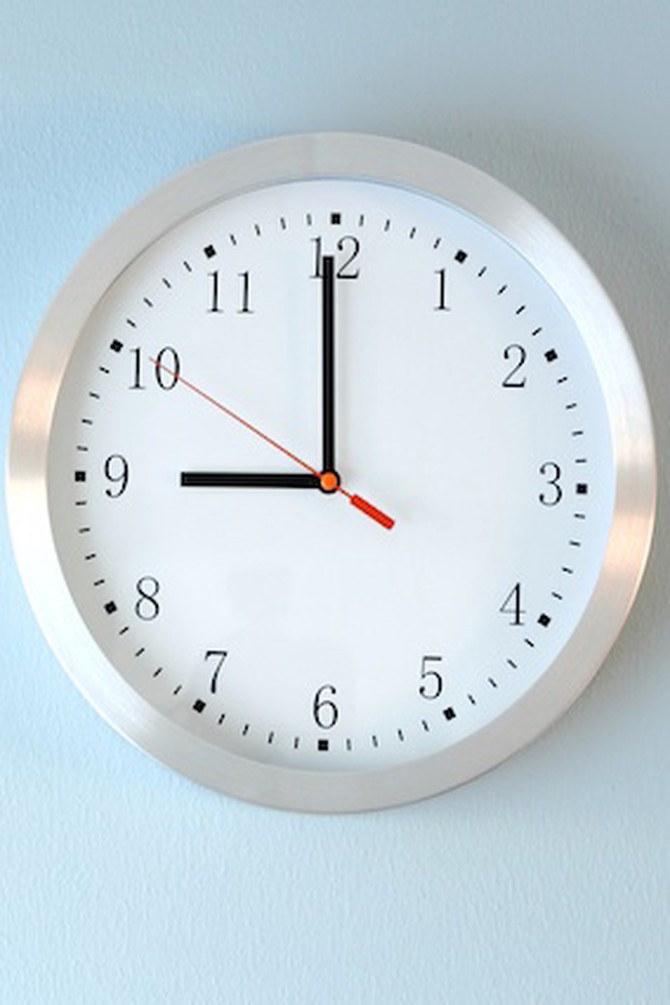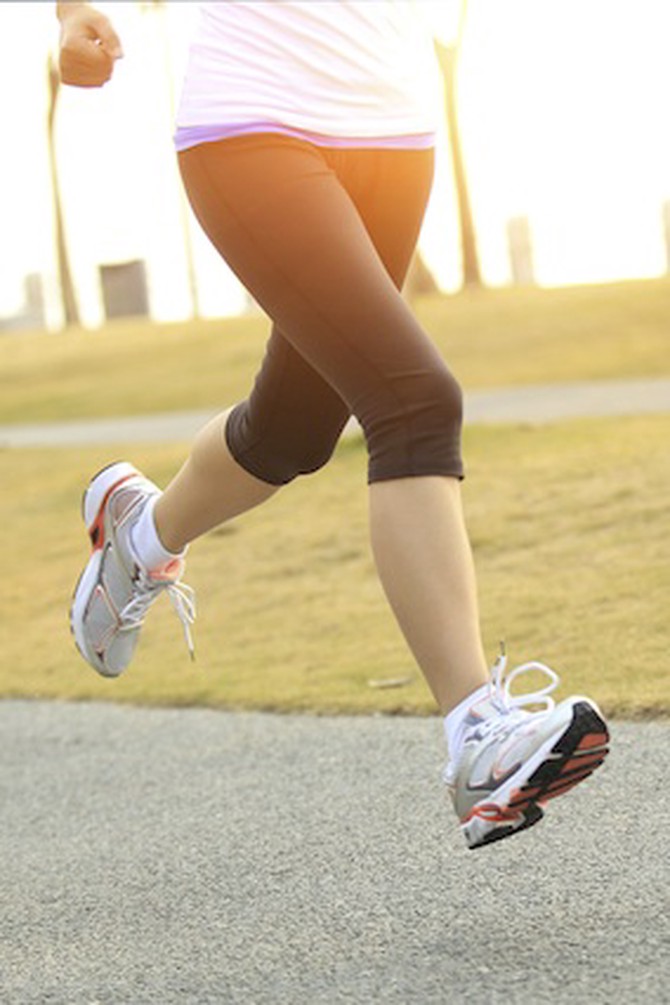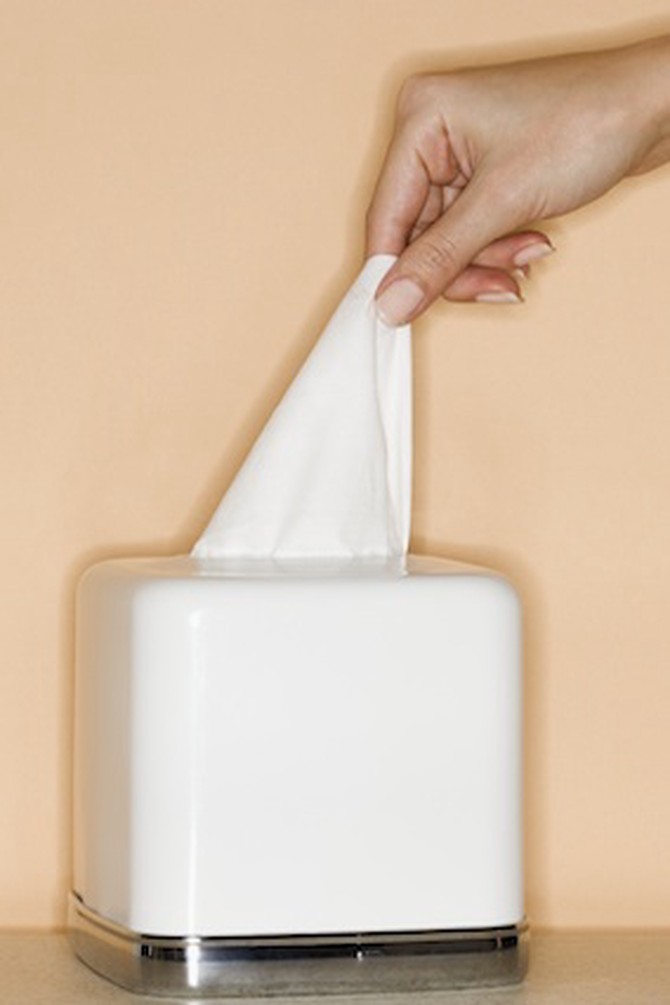9 Scientifically Proven Ways to Have a Happier Morning
Here's how to get a sunnier start to your day.
By Corrie Pikul and Emma Haak

Photo: AntonioGuillem/istockphoto
Have a real conversation with someone.
Why it works: The more time you spend with people, whether they're close friends or just casual acquaintances, the happier you are.
Strange, true thing that might convince you: To really brighten up your morning, skip the small talk. Researchers outfitted 79 people with electronic recording devices for a day to see what kind of conversations they were having and found that less "crazy weather today" chitchat and more substantive talks (think talking about your family or that bucket-list trip you're planning) were linked to higher reports of wellbeing, found a study in Psychological Science. The happiest folks engaged in one-third as much small talk as the unhappiest subjects and had twice as many meaningful conversations.

Photo: pixdeluxe/istockphoto
Indulge in a little nostalgia.
Why it works: Thinking back to happy times doesn't just put you in a better mood in the moment—it makes you feel more hopeful about the future (including the day ahead).
Strange, true thing that might convince you: In a recent study, undergrads were asked to think of a happy memory or an ordinary one and then asked a series of statements. Those who'd imagined the nostalgic moment were more likely to agree with the glass-half-full statements, rather than Eeyore-ish ones.

Photo: Thinkstock
Have a little tulip with your coffee.
Why it works: Evolutionary psychologists believe that we see flowers and plants as a subconscious cue of safety ("Things can grow here—let's set down roots"), reward ("All that foraging paid off") and promise ("These buds mean that fruit is on the way"). So the sight of a colorful bouquet in the morning, they theorize, can convince you that everything's coming up roses today.
Strange, true thing that might convince you: In a study led by Harvard Medical School psychologist Nancy Etcoff, PhD, women who saw flowers when they woke up reported feeling happier (and less anxious) at home, as well as more energetic at work.

Photo: Thinkstock
Sleep on your right side.
Why it works: It will influence your dreams. Turkish researchers found that people who tend to sleep on their right side have mellower dreams, with themes of relief, joy, peace and love. They also report feeling better rested and less dysfunctional during waking hours.
Strange, true thing that might convince you: Strange, true thing that might convince you: Sleeping exclusively on the left side can put pressure on organs like the stomach and spleen (could that be why left-side-sleepers are more likely to have nightmares?).

Photo: Thinkstock
Squeeze yourself a glass of fresh orange juice.
Why it works: It's not just because oranges are the color of the morning sun: They're also high in vitamin B6 and folic acid, both of which have been found lacking in patients who suffer from depression.
Strange, true thing that might convince you: The scent of sweet orange essential oil made test-takers in one Brazilian study feel less anxious throughout the exam (bonus: The effect lingered throughout the afternoon).

Photo: Thinkstock
Go to bed an hour earlier.
Why it works: For all the obvious reasons (you'll be better rested, more alert, more optimistic about what the day holds).
Strange, true thing that might convince you (as if you need it): When you lose sleep, you also risk losing your sense of humor. No joke: The ability to "get" that something is funny requires you to process information cognitively as well as emotionally—and that processing is severely affected by a lack of sleep, explains William D.S. Killgore, an associate professor of psychology at Harvard Medical School. In one of his studies, sleep-deprived participants had significant difficulty recognizing when items like news headlines and cartoons were supposed to make them laugh.

Photo: Thinkstock
Do 10 burpees in the yard.
Why it works: Cardio exercise wakes up your heart and your muscles and can set your mood on an upward trajectory that lasts until nighttime (and may even extend into a more restful sleep). Doing it outside seems to compound the effects. If you don't have time before work for a trail run, this jumping-squatting-planking move, which can be done in a few minutes and a few square feet of outdoor space, is the most efficient cheat.
Strange, true thing that might convince you: Just 5 minutes of exercising in nature can enhance your mood and boost your self-esteem, researchers found (that's at least 20 burpees).

Photo: Thinkstock
Never cry yourself to sleep.
Why it works: Sleep has been shown to make memories more vivid and durable, particularly emotional ones—perhaps as an evolutionary mechanism to help us learn from these experiences (we remember how angry Ug got when we made that comment after the mammoth hunt, so we never, ever say it to him again).
Strange, true thing that might convince you: People shown disturbing images at bedtime had strong reactions both before and after sleeping, found a study published in The Journal of Neuroscience. But when shown upsetting images first thing in the morning and then after a day awake, they didn't seem nearly as fazed. Staying awake after an upsetting experience neutralizes some of the emotion, the scientists concluded, while going to sleep helps "preserve" the emotional response.

Photo: Thinkstock
Get your heart racing...and his, too (wink).
Why it works: Testosterone levels (yes, women, too have small amounts of it naturally) are highest in the morning. Having sex then also boosts your levels of the love hormone, oxytocin. Schedule an a.m. tryst, and you'll not only feel more vital and alive but also more bonded to your partner for the rest of the day.
Strange, true thing that might convince you: Sex increases blood flow to the entire body, even the brain, which can keep the synapses firing and the neurons healthy and pumped.
Next: What the happiest people do at work
Published 04/22/2016

